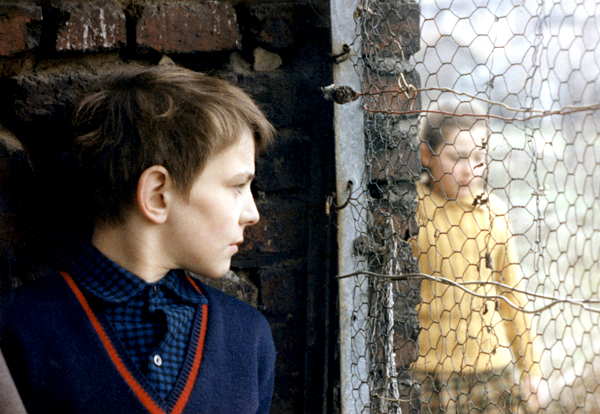|
Reviews of Recent Independent, Foreign, & Documentary Films in Theaters and DVD/Home Video

L’ENFANCE NUE (1968) Absorbing but without sentimentality, horrifying but without sensationalism, Maurice Pialat’s first feature film is an unmistakable and strong link to the elliptical, almost-vérité tradition of contemporary filmmaking that includes Claude Miller, the Dardenne brothers, and Claire Denis. Though he won the Golden Palm for Under the Sun of Satan in 1987, Pialat never landed on the hot list in the U.S. (Loulou, with Isabelle Huppert and Gérard Depardieu, is probably his most famous film here.) Granted, don’t Google the film’s literal English translation, “Naked Childhood,” if you don’t want to arouse the suspicion of the law, but for all of Pialat’s intentions, it’s an apt title for his barebones and unflinching portrayal of a 10-year-old foster boy. “Simple” is how Pialat described the movie in a television interview that followed the film’s French broadcast airing in 1973. (American viewers might be surprised by how seriously French journalists scrutinized the film, as shown in a thoughtful documentary, also included, which presents a broader picture of the fate of foster kids at that time.) Abandoned by his mother, François (Michel Terrazon, who has a stare that could penetrate walls) shuttles from one working-class family to another. In the beginning, he lives in a neighborhood of track houses somewhere in overcast Northern France. We find out, through his young foster mother, that he’s not normal. She says that when he first came into her home he would wet the bed; now he pees around it. François has to realize his place in the family’s pecking order—he doesn’t have a bedroom, sleeping in a bed at top of the stairs instead. Through acting out on his foster sister’s pet, he intentionally sabotages his stay with the family. (I can only assume that no animals were actually harmed.) He’s uprooted—again—and sent on to another foster family. The mystery of his wildly wavering behavior—obedient, thoughtful boy one moment, bad-boy ringleader the next—L’enfance nue has an inherent dramatic tension, making it more of a should-see than simply a blank for film Francophiles to fill in. As Kent Jones points out in an extra, the film’s objective is for viewers to see (and understand) François, not for them to judge him. Is it too late for François to find a stable home? The film never answers the question. (In fact, the open ending may feel too abrupt.) Pialat cast non-professional actors as the benevolent elderly couple who take in François. They made up most of their dialogue, according to co-writer Arlette Langmann, though they followed the script’s outline. (Grandpa really fought for the Resistance; in one of the film’s quietly moving scenes, he tells François how his sister protected him the Germans Gestapo. This earns an unbeckoned kiss from François.) Unaffected, though completely unguarded in front of the camera, the real-life foster parents, Marie-Louise Thierry and René Thierry, are a gift to the director. The film
was not successful at the French box office when it was released in
1968. And even a few years afterward, Pialat was not the best salesman
of the film during the very dry, post-broadcast interview. There are not
many directors who would say that only 30 to 45 minutes of his film are
quite good. He’s wrong—it’s most of it. He criticizes that he toned down François’s
circumstances, but he admits that he didn’t want to scare audiences
away. No apologies are necessary. He made an empathetic film, even when
François’s actions keep the viewer at arms length. He makes them care,
not feel shocked.
Kent Turner
|

